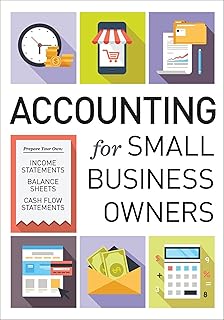Small businesses are grappling with soaring costs, striving to stay competitive amid dwindling consumer confidence in the face of escalating inflation and interest rates. The surge in input, labor, and consumer prices is posing a significant challenge to businesses, with fears that passing on these hikes could drive customers away. Data from NAB’s business survey indicates that costs across the board have reached unprecedented levels since the survey’s inception in 1997, with labor and input costs skyrocketing, fueled largely by COVID-19-related disruptions.
Gareth Spence, a senior economist at NAB, attributes the cost surge to pandemic-induced supply chain disruptions and staffing issues, leading to a noticeable increase in input costs, particularly in sectors like retail. Ngoc Nguyen, the owner of Cafe Mambo Bar & Lounge in Melbourne, has witnessed a sharp rise in every input cost for her business, including meat, produce, energy bills, and goods like coffee and alcohol.
To navigate these challenges, Ngoc Nguyen has made strategic adjustments, such as revising menus, reducing operating hours to trim labor costs, and incrementally increasing prices for customers. The recent 5.1% hike in the minimum wage and the rise in the superannuation guarantee have further added to the financial strain on businesses, compounding existing pressures.
Australian Retailers Association CEO Paul Zahra highlights the additional burden faced by businesses grappling with rising rents, labor shortages, and the need to attract and retain talent in a fiercely competitive environment. The delicate balance of absorbing price hikes while maintaining competitiveness is a juggling act for businesses like Kerry Dickens’ women’s clothing store in New South Wales, which faces escalating supplier costs.
With consumer confidence waning and concerns over the impact of rising interest rates, businesses are treading cautiously to avoid eroding profit margins further. John Buchanan from the Workplace Research Centre emphasizes the positive economic impact of higher wages, underscoring that increased consumer spending can benefit businesses in the long run, despite the immediate financial strains.
Alexi Boyd, CEO of the Council of Small Business Organisations Australia, calls for a temporary relief from new compliance measures to allow businesses to focus on growth. The prevailing uncertainty in the business landscape, coupled with record-low consumer confidence levels, paints a challenging outlook for small businesses striving to weather the storm of escalating costs and economic uncertainties.
📰 Related Articles
- Victoria’s Secret Forecasts Decline Amid Economic Uncertainties
- Surge in Australian Business Insolvencies Amid Economic Turmoil
- Silver Prices Surge Amid Economic Uncertainty and Supply Deficit
- Silver Coins’ Value Surges Amid Economic Uncertainties
- Silver Bullion Coins: Affordable Investment Option Amid Economic Uncertainties






